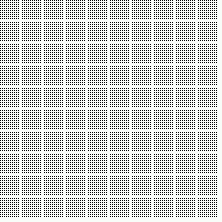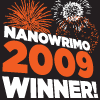How Many Words Have You Ever Written?
AWM #59: On getting good with practice, in this case a million words worth of practice ✍️
One million words. That’s what you need to write, if you want to be a writer. At least, according to some people who are writers themselves, which means it’s probably trustworthy advice.
Visakan Veerasamy has an ongoing project of writing 1000 pieces of 1000 words each, for a total of one million. “If you can write a million words, you can write pretty much anything,” he says in the 521st of these. Patrick McKenzie also advises on Twitter to write a million words: “One of the best things that the Internet did for society is that it created spaces which removed artificial constraints on how quickly you could write a million words and gave social permission for writing at any pace.”
Upstream of these excellent online writers, famous author Ray Bradbury is quoted to have said, “Write a thousand words a day and in three years you will be a writer.” Three years is 3 × 365.25 = 1,095.75 days, which works out to 1,095,750 words.
The idea is a basic one: To become good at the craft of writing, you need, like for any other craft, a lot of practice. How much practice? There’s no definitive answer, but we can make up a satisfyingly round number: One Million Words! Is it correct? Maybe. Who cares? It’s in the right ballpark, probably. It does a good enough job of communicating the sheer amount of practice you need.

Faux numerical goals like this can be fun, provided that you can measure your progress. In this case it implies counting all the words you’ve written so far in your life.
That’s a rather tall order. But we should be able to make a back-of-the-envelope calculation — a Fermi estimate — to get a plausible answer.
What words should count?
Let’s clarify what it means to “write” words with the goal of becoming a writer. It needs to be somehow creative. Some sort of composition work, where you express ideas in a way that didn’t already exist until then. Copying words dictated by someone else doesn’t cut it, now do notes taken during classes or meetings. These are acts of recording more than acts of expression.
Conversely, any words meant to communicate something to others should count. Books, blog posts, short stories, newspaper articles, work reports, academic papers, posts and comments on social media — they’re all ways to express something new. They should count even if you didn’t end up publishing them or showing them to anyone; since they were intended for communication, they made you practice good communication.
More private forms of writing should also be included. This comprises correspondence such as letters or emails, meant to be read by one or a few recipients. It also includes writing for whom the audience is yourself (or no one), like journaling, diaries, and personal notes that aren’t just copying something.
What about rewriting? If I write a 500-word short story, then cut out 100 words and write 100 new words instead, is the total 500 or 600? I’d argue for 500. Cutting out words is a part of the writing process. The final result is what we’re interested in: the writing that is assumed to be fulfilling its communication goal.
What about genres and languages? If your goal is to write fiction, should your fiction words have more weight than your tweets or your work emails? If you want to develop the art of writing in English, should you count words written in your non-English first language? For the purposes of this exercise, I’ll say yes to both. Partly because we’re looking at this from a very general lens, but also because the principles of good writing lie deeper than genres and languages. Writing is about having something interesting to say, and saying it in an interesting way. It doesn’t matter if you do it in the form of fiction, tweeting, or a work email, or in English or French or Tibetan.1 In all cases it’s still practice.

I would however not count translation work, which — pleasurable and useful though it is — is more about mastering the mechanics of language than what truly matters, i.e. finding interesting stuff to say and saying it well.
Also, this should be obvious, but spoken words don’t count (unless you wrote down a speech first). Writing and speaking are too different. Skill is not easily transferable between them.
I’m undecided as to whether instant messaging is closer to speech than to writing. You don’t really practice the craft of writing when you quickly reply in a group chat or SMS convo. Since it seems hard to estimate how many words that would be, it’s safer to exclude them.
A Fermi estimate of my own word count
I strive to be writer. So how may words have I written in my entire life? Have I reached the million mark already? Am I getting there?
Fiction
I’ve been writing fiction seriously since 2007 or 2008, when I randomly decided to write a novel just because I was tired of being constrained by teacher-imposed word limits. When you write a novel, you tend to care about word counts, if only to know the size the hypothetical book at the end, so I have fairly precise numbers here. The novel I finished writing this year, for instance, has 71,000 words.
Now, trying not to cringe too much while looking at my folder of past and unpublished novels, I get…
Latest novel, finished this year: 71,000
Previous novel (unpublished): 67,000
First novel I actually try to get published, and failed: 92,000. Wow, this one was longer than I remembered.
Novel I wrote in 2010 for NaNoWriMo: 52,000. NaNoWriMo is an event in which you try to write a 50,000-word novel in a month. I did it twice, and this was the second one. I wrote enough words to “win,” but it wasn’t a complete story.
Novel I wrote in 2009 for NaNoWriMo: 51,000. This was the first complete novel I wrote.
Others: My first ever attempt at novel-writing was a fantasy story set in an Ancient Greece-inspired setting, but I didn’t complete it. Maybe it had 15,000 words? My “novel” folder also contains an abandoned 11,000-word attempt as well as shorter scraps I feel comfortable ignoring. I’d gladly banish them forever into oblivion instead (like the rest of this list except the latest one, really).

The total from this list is 359,000 words. Already a good part of the way to one million!
Then there are the short stories. I once tried to get a short story collection published, to no avail; it had about 46,000 words in total. To this I need to add the three stories I’ve actually published in actual magazines, which have 4,700, 2,300, and 5,800 words respectively. Then who knows how many other stories are lying around in my messy computer folders, or were written on paper during my childhood or school years, completely forgotten. Seems okay to round this all up to, at least, 150,000.
Combining this with the novels, we’d get around 500,000 fiction words, perhaps more. Half a million.
Blogging and Online Writing
This is issue #59 of Atlas of Wonders and Monsters. Last week’s post on my weird 2021 had about 2,500 words. The one before (on Ted Chiang) had 5,000, the previous one on color had 4,000, and going further into the past we get 2,000, 2,400, 2,800, 3,200… A random sample of pieces from much earlier gives 1,700, 1,000, 1,700 — it looks like the length of my posts has increased over time. These ten not-so-scientifically-selected pieces give an average of 2,600 words per post. Multiplied by 59, that’s 153,000 words right there.
I’ve blogged in other places. There are 24 posts on Dark Gray Matters, the blog that I’m phasing out in favor of this newsletter, and 49 on my old blog in French. (Some of that is fiction, but I didn’t count it earlier.) Assuming 2,600 words per post again, which may be somewhat of an underestimation, we get an extra 190,000 words.
Might as well add the four essays I published so far on The Classical Futurist, for a total of 12,000 words. There was some other ancillary writing, so let’s round this to 15,000.
Social media? I’ve been tweeting actively since August 2020, which is 4,363 tweets. A full tweet, near the 240-character limit, is about 50 words. Many of my tweets are around that length, but then many others are one-word replies. Assuming that the average is halfway, at 25 words, we get 109,000 words. Let’s round this down to 100,000.
So far the total is 458,000, but there’s more. I’ve probably written several thousand words on Reddit and, much more rarely, on other platforms like Facebook. I feel okay rounding up to 500,000.
Another half million. Combined with fiction, we can say I’ve written a million words!
Correspondence
Emails, letters, postcards, birthday cards… I have no idea how to calculate the sum of all that. But it probably doesn’t matter too much, since these things are being more and more replaced with instant messaging, which I decided did not count.
Also, unless you’re a prolific correspondent, the number is perhaps in the same ballpark for most people, so it might not matter much for measuring someone’s skill as a writer. I’m not sure.
School and work
Even murkier. How many take-home assignments, book reports, essays, undergrad theses, and so on did I write? How many JIRA tickets, comments in code, pieces of documentation? Overall probably a couple hundred thousand words?
Journaling
For this, at least, I can probably make a more confident assessment. I don’t journal much. I’ve tried keeping diaries at various points, but I always abandon them quickly. In the past year, I have been jotting down notes daily in my Knowledge Management System, but I’m also not very good at that, and in any case it can’t amount to much.
Maybe there are other categories I haven’t thought of, but if I haven’t thought of them, it seems safe to assume they wouldn’t contribute much to my total word count.
Conclusion
It seems likely that I have, over my lifetime, written between 1 and 2 million words, mostly in French, with a substantial fraction in English.
The two categories that matter the most to call myself a “writer” are also the biggest two, fiction and blogging. They’re also the ones that I consciously chose to do, and that most people don’t. We can ignore the rest, which leaves a total amount of about one million.
So am I writer then?
Honestly, yeah. I think my latest novel really is far more publishable than my previous attempts. And I’m also getting more and more satisfied with my newsletter. I feel confident that I can write something at least decent each week. So perhaps the one million figure is a somewhat precise goal after all.
It’s a bit unclear to what extent the skills are transferrable between French and English and between the genres of novels, short stories, blog posts, and tweets. Perhaps it’s best, to be safe, to get to one million in each. I’ll keep writing, so I’ll get there eventually.
And you, dear reader: Do you write? If so, how many words have you written?
This assumes that words can be counted in the same way across languages, which is approximately true for the two languages relevant to me, French and English, but maybe not for Tibetan.





